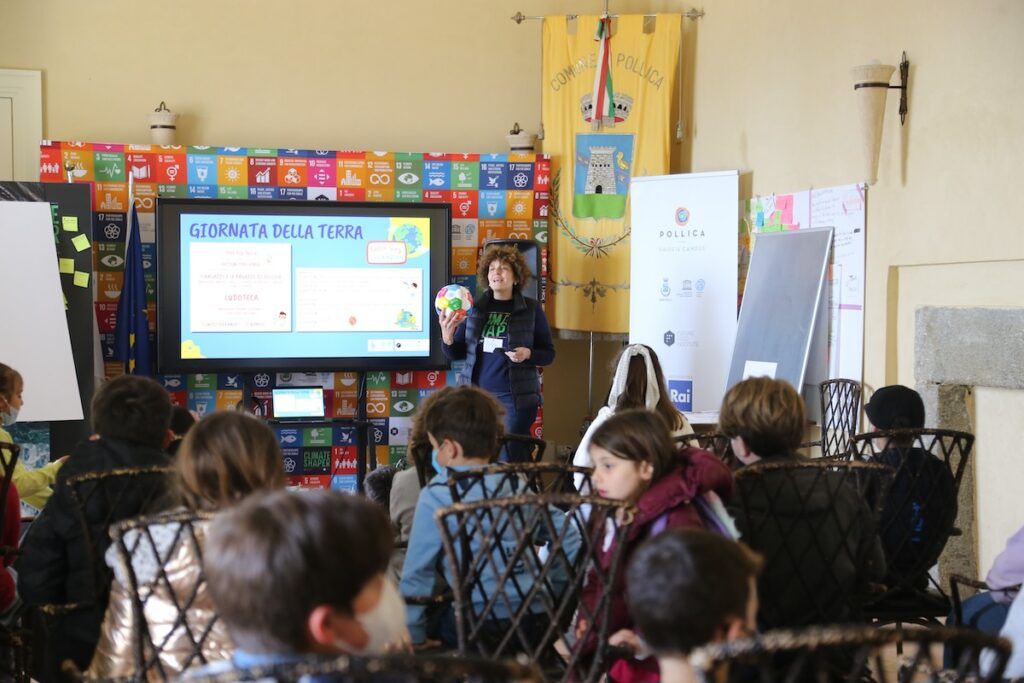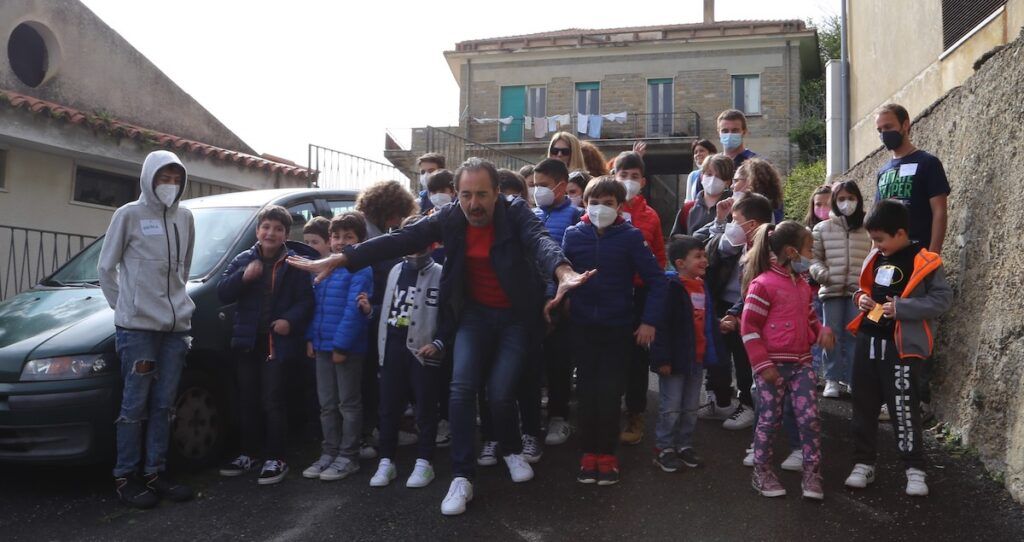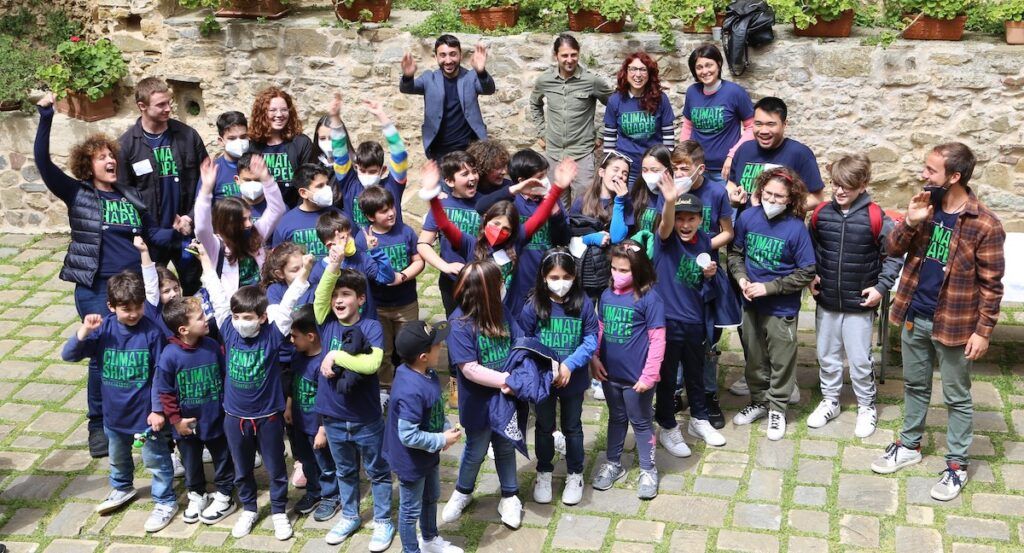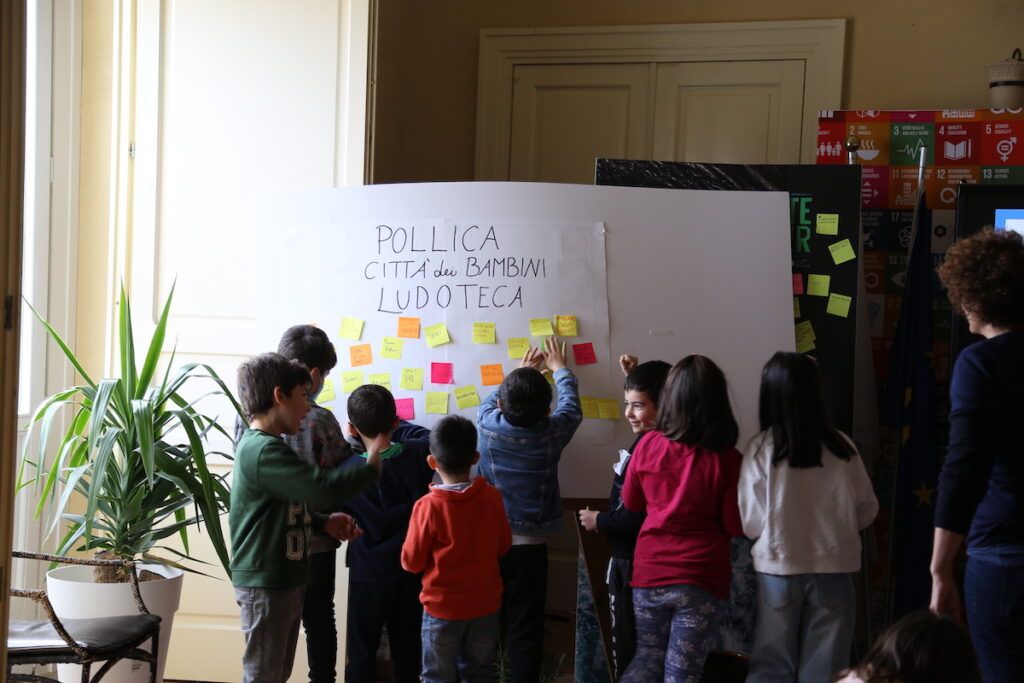During the weekend of 23 and 24 April – immediately following Earth Day – a Design Challenge was held in Pollica, dedicated to the children, to recover and give new life to the village playroom, now waiting to be set up, and make it available to the community. The goal was to create value for a reality that wants to imagine a more inclusive and sustainable future to plant the seeds of trust and resilience in the new generations.
The event was conducted at the Paideia Campus Living Lab, a living laboratory part of the wider Cities2030 network. Local institutions were involved, and the children were called to personally take part in the co-design process, through a stimulating and innovative design challenge.
The initiative was conceived with the aim of reshaping the decision-making mechanisms that, at the local level, risk stifling the voice of the community, thus preventing it from expressing its real needs.
Empowering the population by including them in deliberative processes is the first step towards an efficient and sustainable local development.

The playroom designed by children, for the children
Thirty boys and girls responded to the call from the Future Food Institute: young scientists, artists, creatives, inventors, innovators and climate shapers, united to put forward the best ideas developed through flexible and imaginative thinking patterns. It is therefore essential to involve them when talking about the future, especially when it comes to projects addressed to them.
With the support and guidance of facilitators and professionals, the young protagonists of this hackathon were invited to express their initial thoughts on the playroom, before visiting the space made available by the Municipality of Pollica for the realization of the project. They then returned to the working site, the Capano Princes Castle, where they were divided into groups and began to work on the design challenge, passing through moments of divergence and convergence, training the values of collaboration and inclusive thinking until they reached a final result on Sunday morning.
The co-design process with the community
The participation of the community during the planning of new services is fundamental not only to receive better ideas and solutions, but also and above all to promote opportunities for aggregation and debate that will develop a proactive mentality, that looks to the future with hope and is capable of strengthening the roots that bind the population to its territory.
There was a time when it was difficult for Pollica to see the future clearly again [...] From today, we have a different road to take. We will build the future together, starting with the younger generations who will now have their own space - Pollicalandia "the Heart of Fun" with the soul that they have chosen to give it this weekend
Stefano Pisani, Mayor of Pollica

The themes addressed and the projects developed in the design challenge
The design process of the playroom was not limited to imagining a space to play and an end in itself, but it was propaedeutic to a rediscovery of the territorial identity values: ecology, conviviality, biodiversity, sociality and the Mediterranean Diet were all taken into consideration for an optimal result. The children learned to reflect on these topics with an all-round vision, in full respect of the principles on which the Pollica 2050 project was founded.
Towards the end of the activity, in the convergence phase, the working groups were reshuffled in relation to different fields and on a voluntary basis of the passions and preferences of the participants: from sport to digital, passing through ecology, creativity and sociality, each group gave its contribution for a result that would be able to express the local identity in the round and that would act as a compromise for the many proposals put forward.

"We designed not a simple game room, or a dreadful baby parking, but a community house capable of expressing its identity, preserving the values of the territory, training the ecological awareness of children, stimulating creativity and integrating digital in a "smart" way so that it can really become an effective tool to improve our lives and not a reason for alienation".
Sara Roversi, President of the Future Food Institute

